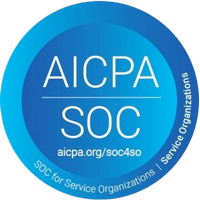How should healthcare organizations spend their money? This year at eCap, we invited senior living industry leaders to share their thoughts on healthcare budget allocation. Here’s some of what we learned.
Invest in Nurse Education
According to Moshe Blonder, founder of Saba Healthcare, “I think the biggest and best way the industry should spend their money is on getting nurses into the marketplace.” The nursing shortage is a documented phenomenon that’s profoundly affecting many healthcare sectors. No matter how quickly and effectively you hire, there aren’t not enough nurses in the job market to adequately fill the healthcare system. So how can counties, cities, and even individual healthcare organizations increase the number of nurses available to hire?
Yitzy Weinberger, CEO of Elite Standard Recruitment Inc. stated that “I would love to see counties and cities actually spending more on employee education.” Structural and political changes may be needed for nurse education to be accessible to everyone. But that doesn’t mean that individual healthcare organizations can’t also lead a push to bring more nurses into the industry. Tuition reimbursement is a great tool for those hiring in healthcare. The cost of tuition is a huge barrier to entry when it comes to healthcare roles. If you offer tuition reimbursement, you may be able to bring more nurses, CNAs, HHAs, and other medical staff into the job market (and your own organization).
Here’s what you need to know before deciding if tuition reimbursement is right for you.
Tuition Reimbursement Has Pros and Cons
- The pros: According to one survey, 79% of employees stated that “tuition assistance was an important or very important factor in joining their company.” Tuition assistance can help you attract new candidates and retain existing ones. You can also deduct tuition from your taxes, “up to $5,250 annually per employee.”
- The cons: Setting up a tuition reimbursement program can take a high initial investment and a lot of red tape. It might take time before you see returns.
Tuition Reimbursement Is Different for Every Organization
- Before you starting reimbursing educational expenses, you need to decide exactly what that entails. Are your employees required to work towards a further nursing degree? Or can they use their reimbursement costs towards whatever they wish? What are the monthly and yearly caps for reimbursement?
Setting up a tuition reimbursement can seem daunting, but is a great way to train, attract, and retain staff. Learn more here.
Partner With the Right Technology
Donna Kedar of People Powered Nursing suggested that the senior care industry be “spending more money on technology to work more effectively and efficiently.” With this tech spend, Kedar says organizations may be able to get “the visibility that they need.”
Kyle Benesch, founder of the KARE app, warns that “if groups are not innovative with the technologies that they use to attract and retain staff, they’re going to struggle moving forward.”
The industry leaders we interviewed are in alignment: technology can help ease the way for healthcare hiring teams. But how do you decide where to spend your tech budget? After all, there’s a lot of software out there, and a limited amount of healthcare hiring budget.
Look for Software That’s Intuitive
Whether you’re looking for an applicant tracking system (ATS) or human capital management (HCM) software, you need it to be user-friendly. After all, this software will be used by multiple hiring teams across facilities. If the goal is to cut down on your time-to-hire and save money, clunky software won’t help—but an intuitive and easy-to-use platform can.
Learn what to look for in a software demo, so you can get the best software for your team
Ask About Integrations
Software for employee referrals, software for onboarding, software for applicant tracking, software for payroll. All this tech can get overwhelming. When shopping for software, ask your sales rep about integrations. With integrations, you can access different functionalities without ever leaving your platform. Invest in software with multiple functionalities to cut down on costs and centralize your hiring process.
Develop Retention Programs
Ben Cohen, CEO of August Healthcare, stated that “we have to focus more on, from a financial standpoint…investing into the retention of staff.” This point was also echoed by Elliot Kohn, of Ascend Health, who added that “I think the industry should spend their money on incentive programs for staff” and “keeping good quality staff.”
When considering healthcare budget allocation, it’s important to put time and effort into retention. So how can you use your budget to boost retention?
Accommodating Your Staff With Fair Schedules
Flexible scheduling (including shorter shifts, staggered start and end times) can be a great way to ensure that employees can work their jobs without sacrificing other parts of their life. Float pools, or registered nurses who are on-call to help fill shifts, can also help promote work-life balance for some employees.
Offering Benefits That Help Your Staff Come to Work
Flexible benefits can also help retain employees. As of March 2021, 36% of hospital industry workers had some form of flexible benefit package (the ability to choose what benefits work best for them). Maybe employees want to prioritize mental health, or reduce caregiver burden with childcare. They could then choose the benefits that prioritize their needs, instead of being assigned benefits that don’t suit them. Not only do flexible benefits boost retention, they can also prevent burnout in the long-term.
Learn more about using benefits to boost retention
Better Hiring With Apploi
How should you spend your healthcare budget? Investing in the right technology can help you save money, retain nurses, and attract new candidates. Apploi streamlines your process from hire to retire. Schedule a demo today.





